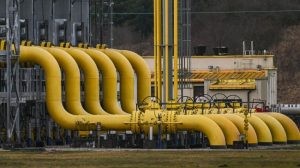The Centre for Climate Change and Development (CCCD) at Alex Ekwueme Federal University, in collaboration with the World Resources Institute (WRI) in Washington, DC, is holding an online event to present the key messages emanating from recent national research on the implications of the oil and gas transition on the Nigerian economy.

Nigeria has launched its Energy Transition Plan (ETP) and has also committed to achieving net zero carbon economy by 2060. Like many countries that are vulnerable to the adverse effects of climate change, there is an understanding that a shift away from fossil fuels is a requirement. However, being one of the largest oil-producing countries in Africa and a major exporter of crude oil, the shift may not be an easy proposition.
Given the heavy reliance on fossil fuel income, where oil represents up to 10 percent of GDP and accounts for more than 80 percent of Nigeria’s total exports, the shift could cause significant revenue losses for various levels of government, with strong implications for the government’s ability to spend on social services and infrastructure, as well as cater for those employed in the public sector. This potential loss of government revenue could have a multiplier effect on the entire economy. Effective planning and implementation of the transition would be required to ensure that it is just, equitable, and economically viable.
The Centre for Climate Change and Development, in collaboration with WRI, has undertaken this national research project with the main objective of assessing the impact of the transition away from the oil and gas sector on government revenues, workers supported by the oil and gas industry, and the overall impact on the economy. The project yielded very interesting results and policy recommendations.
Some of the questions explored include:
- How are oil and gas revenues distributed from national to various sub-national governments, and how are those revenues currently utilised?
- What are the fiscal implications of the transition away from oil and gas for the national and sub-national governments, especially those that are heavily reliant on oil and gas revenues?
- How will the transition away from oil and gas impact workers directly and indirectly supported by the industry?
- What is the suite of policy recommendations that can enable a just and equitable transition away from oil and gas in Nigeria?
In the pre-event press conference, the Director of CCCD, Prof. Chukwumerije Okereke, stated that the research was conducted with high-calibre international organisations with several decades of experience, and it yielded interesting insights and policy recommendations that can support Nigeria in navigating the path towards sustainability.
Distinguished guests expected at the event include the WRI’s International Climate Initiative, David Waskow; Director General of the National Council on Climate Change, Dr. Salisu Dahiru; Solomon Bulus Maren, National Coordinator of the African Parliamentary Network on Climate Action; and Sam Onuigbo, a member of the Governing Board and Chairman of the Committee on Climate Change of the North East Development Commission, will be guests of honour at the event.
The event is also intended to present the results of national research done on the subject, using models and scenarios to analyse the impact of the oil and gas transition on the economy of Nigeria. The online event is scheduled to take place on Thursday, March 21, 2024, at 2:00 PM (WAT).
